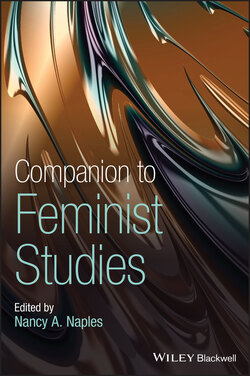Читать книгу Companion to Feminist Studies - Группа авторов - Страница 37
Historical and Theoretical Background
ОглавлениеMarx and Engels developed their insights about the social, historical character of reproduction between the 1840s and 1880s. Friedrich Engels' The Origin of the Family, Private Property and the State (1884) elaborated the evolving social relations of production and reproduction. Capitalism, in Engels' argument, hollowed out the productive realm of the family's labor under feudalism for its own use. Women's work of handicrafts, spinning, subsistence farming, livestock rearing, and other agricultural labor gave way as common lands became enclosed, and rural survival depended on wages alone. Under capitalism, Engels argued, “household management lost its public character. It no longer concerned society. It became a private service: the wife became head servant, excluded from all participation in social production” (Engels 1942, p. 65). Women's subordination was neither biologically natural nor God‐given; instead, the class relations of capitalism enforced the gender hierarchies that anchored women's oppression. Marxist feminists viewed this patriarchal family as integral to capitalism, and thus a site of oppression that must be destroyed. Familial gendered labor relations, instead, should be socialized. Only when women as workers joined proletarian struggles against capitalism could they combat women's oppression in patriarchal values and social orders. Marxist feminists expanded these insights in the 1880s through the 1920s to ask how divisions of reproductive labor and productive work reproduced capitalism as a whole. In particular, Rosa Luxemburg argued that imperialism relied upon reproduction to more intensively exploit workers, new markets, and natural resources (Luxemburg 1951).
In the early 1900s, socialist feminists demanded a better understanding of how reproduction became women's work and demanded the end to monogamous marriage and objectification in the family (Bebel 1910). They criticized the strict separation between the private family/home and the public workplace (Krupskaya 1899). In campaigns to organize women during the 1880s, the praxis of socialist feminism developed explanations for why women's work was paid less than men's work. It challenged the fiercely policed domain of factory work as necessarily men's work; and sought entry for women workers into the collective bargaining units of workers' associations and unions (Zetkin 1976). Socialist feminists sought to synthesize feminist analyses of gender inequality, social reproduction, and economic reproduction. They developed a broader view of women's economic, social reproductive role and gender oppression as interactive contributions toward women's oppression.
Engels and Zetkin examined the family as the site of women's oppression, used for the further extraction of women's (and to a lesser degree men's) unpaid reproductive labor by capitalism. They also targeted marriage as a religious and state institution that enforced women's subordination to men and to capital. Neither, however, substantively theorized how control over women's bodily integrity and sexual desires was also a constitutive facet of capitalism. Alexandra Kollantai, who joined the Bolshevik Party in Russia (later the USSR) from 1899 to her death 1952, raised precisely these questions. In her 1908 introduction to The Social Basis of the Women's Question, Kollantai agreed that “woman” is a class‐divided group within capitalism; therefore, the vote alone was not enough to ensure all women's liberation. Women's franchise did nothing to advance the power of workers for themselves; instead, it heightened the class power of some women over others. Instead, working‐class women must join the proletarian revolution in solidarity with working‐class men to overthrow capitalism (Kollantai 1908 [1984]).
Over the course of Kollantai's life, particularly in the USSR after the 1917 revolution, she argued that women's liberation had multiple facets that could not be won solely as workers. Private property, she agreed, is the underlying cause of women's oppression. However, without the active transformation of morality, sexuality, and the family constitutive of state socialism, women would never gain full emancipation. Kollantai formed the Women's Bureau in 1919 and led it for over two years between 1920 and 1922. She developed programs of state support for children and mothers, such as paid maternity leave and childcare institutions. She changed divorce laws, civil marriage laws, and laws for illegitimate children's rights. During the 1920s she fought to liberate oppressive mores of sexuality and the family in her position (Kollantai 1920). Sex, desire and pleasure, she argued, should also propel revolutionary horizons. These alternate emotional and ethical orders took shape primarily in her novels, such as Love of Worker Bees (1923 [1978]) and Red Love (1927). In these works, the revolution, the will of the people, and the desire to live fulfilling lives shared a libidinal ethos with bodily autonomy and women's right to experience sexual pleasure as they wished. She described collectivist family forms that could create new egalitarian social relationships, amply supported by state socialism. Kollantai, too, faced resistance to her ideas, but emancipatory and revolutionary sex, love, care, and desire remain bedrock principles in Marxist feminism.
